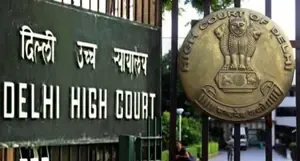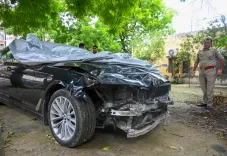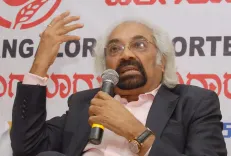Did the Delhi HC Order a Fresh Hearing for DU Student’s Poll Nomination?

Synopsis
Key Takeaways
- Delhi HC mandates fair hearings for students.
- Attendance records must be accurately calculated.
- Students have the right to contest their nominations.
- The Lyngdoh Committee guidelines set crucial attendance thresholds.
- Institutions must balance policies with student rights.
New Delhi, Sep 16 (NationPress) The Delhi High Court has mandated Satyawati College of Delhi University to conduct a personal hearing for a student whose nomination for the Students’ Union President was denied due to insufficient attendance. A single-judge Bench presided over by Justice Mini Pushkarna heard a writ petition from a second-year B.Com student contesting the rejection based on the failure to meet the 75 per cent attendance requirement outlined in the Lyngdoh Committee guidelines.
The student, Roop Bansal, contended that his attendance records were inaccurately calculated and claimed that he was not given a chance to present his case before the college. The petition, represented by advocate Ashu Bidhuri, referenced attendance logs and WhatsApp records from online classes to demonstrate that numerous classes he attended were not acknowledged.
In defense, the college administration asserted that the verified records indicated the student's attendance was only at 65 per cent. After reviewing the submissions, Justice Pushkarna remarked: “It is clear that a student lacking the requisite minimum 75 per cent attendance cannot be permitted to run for elections.”
Nonetheless, recognizing that the student had not been afforded a hearing by the Grievance Committee, the Delhi High Court instructed the committee to arrange a personal hearing that same day at 2:00 p.m., with faculty members of Hindi, English, and Accounts present to review the records. “The records submitted by the petitioner shall be thoroughly evaluated, and the attendance will be recalculated in the petitioner’s presence during the hearing,” Justice Pushkarna ordered.
The court clarified that should the student meet the 75 per cent attendance criterion, his nomination would be accepted, allowing him to participate in the elections. “If the attendance remains below the required threshold, the petitioner will be informed, and consequently, his nomination will be rejected,” it added, concluding the writ petition.
In light of the case's “extraordinary circumstances,” the Delhi HC also mandated that if the petitioner’s nomination is validated post-review, he should be allowed to campaign until 9:00 p.m. that evening.






